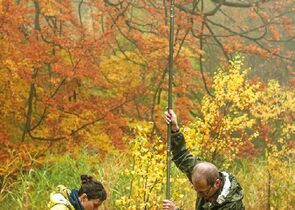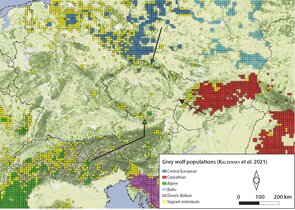Ten-thousand-year History of a Pool – What Peat Hides in the Březina Nature Reserve in the České Stř

Sediments of water bodies and peatlands harbour archives of the past. Investigation of them may provide information about what past ecosystems looked like. Which changes have natural ecosystems undergone over thousands of years? How have they responded to climate change or shifts in landscape exploitation by humans? Answers to these questions may help setting limitations to site management as well as defining a baseline for the natural ecosystem restoration. They can show us which changes have taken place in a particular area many times in the past and what, on the other hand, is an unprecedented present issue requiring active management. We will show the possible application of palaeoecological research in nature conservation on the example of the Březina Nature Reserve (NR) and Site of European Importance (SEI, pursuant to Act No. 114/1992 Gazette on Nature Conservation and Landscape Protection, as amended later, the term for Site of Community Importance, SCI, later Special Areas of Conservation, SAC, under the European Union’s Habitats Directive), a unique wetland in the České Středohoří/Central Bohemian Uplands. It may be an example for other sites at which sediment elimination often destroys the heritage which may turn out to be a basic natural archive if carefully investigated.
Nature Conservation 2024 — 30. 5. 2024 — Research, Surveys and Data Management — Print article in pdf
On the Origin of Czech Wolves Using the Slavkovský les/Slavkov Forest Mts. As an Example

Despite the considerable effort of scientists and conservationists to clarify all aspects of the biology of the Grey wolf (Canis lupus) and its expansion in Central Europe, various misconceptions and mistakes live on with the general public, which may lead to needless conflicts. The purpose of this contribution is to clarify the origin of Czech wolves in the light of the return of wolves to Central Europe, using the example of an area with a rich hunting tradition and of extraordinary importance from the point of view of nature conservation.
Nature Conservation 2024 — 30. 5. 2024 — Research, Surveys and Data Management — Print article in pdf

